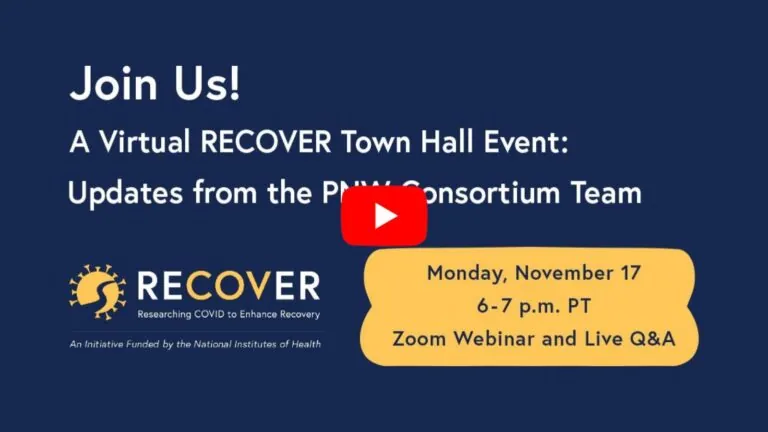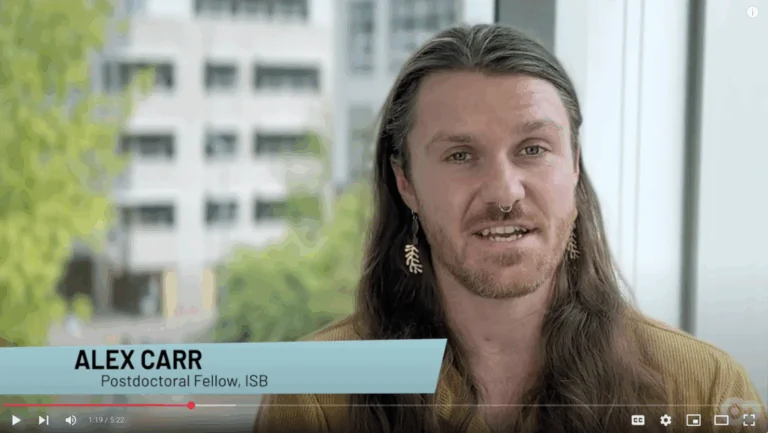How Bacteria Build Communities That Can Impact Your Health
Bacteria are much more than single-celled organisms swimming around. Bacteria also form communities called biofilm, and work together to maintain the microbial community. Biofilm is just one research area of ISB’s Kuchina Lab. In this Research Roundtable presentation, ISB Assistant Professor Dr. Anna Kuchina details her work studying biofilms.
When you think about bacteria, what do you picture? Perhaps you think of a single-celled organism, swimming around, competing against other bacteria for survival. This understanding, while accurate, is just part of a much more complicated story.
When conditions are right, bacteria also form biofilms – a community of bacteria surrounded by a protective substance and adhered to a surface. Dental plaque is an example of biofilm that most of us are familiar with. Within biofilms, bacterial cells may still compete with one another, but also work together to maintain the microbial community.
It is estimated that up to 80 percent of chronic bacterial infections are associated with bacterial biofilms. These infections span a wide range of conditions and organs, including implants, prosthetics and contact lenses, as well as chronic wounds and recurrent UTIs. The biofilm-associated infections can be difficult to treat with antibiotics alone, and often require a combination therapy.
Studying biofilms is just one of the research areas of ISB Assistant Professor Dr. Anna Kuchina’s lab. Dr. Kuchina, who joined ISB one year ago, delivered a Research Roundtable presentation detailing her study of biofilms, and discussed a state-of-the-art technology she developed that will shine light on how biofilms are made up and how individual bacteria behave in the community.
You can watch Kuchina’s presentation here, or by clicking play on the video above.
Research Roundtables
ISB hosts several Research Roundtable conversations each year to feature our leading scientists discussing their latest research. These free virtual events are designed for non-scientists, and are open to anyone interested in the topics.
Past Research Roundtable topics include the gut microbiome, long COVID, the impact of COVID-19 on pregnancy, Alzheimer’s Disease, finding drugs to treat Tuberculosis, identifying markers for cancer years before diagnosis, and many more.
You can explore all past Research Roundtable talks and our other events here.


